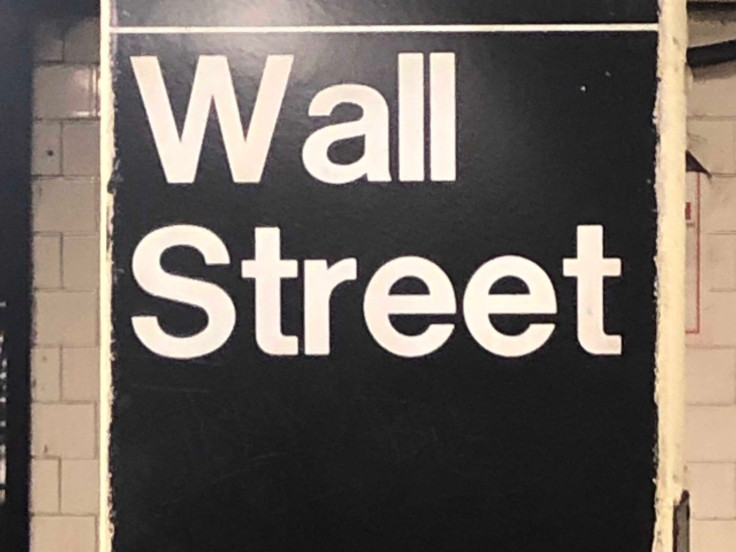Wednesday's Stock Market Close: US Equities Finish Mixed As Traders Weigh Grim Private Payroll Data

KEY POINTS
- ADP said on Wednesday that more than 20 million private sector jobs were lost in April
- St. Louis Fed President James Bullard said Friday’s jobs report could be one of the worst in history
- German factory orders plunged by 15.6% in March
U.S. stocks finished mixed on Wednesday, ending a two-day rally, as traders considered a very grim private sector jobs report while hoping for more states to gradually reopen their businesses.
The Dow Jones Industrial Average fell 218.45 points to 23,664.64, while the S&P 500 slipped 20.02 points to 2,848.42 and the Nasdaq Composite Index gained 45.27 points to 8,854.39.
Volume on the New York Stock Exchange totaled 4.18 billion shares with 935 issues advancing, 24 setting new highs, and 2,014 declining, with 19 setting new lows.
Active movers were led by Norwegian Cruise Line Holdings Ltd. (NCLH), General Electric Co. (GE) and Macrogenics Inc. (MGNX).
The state of California will allow clothing stores, bookstores and flower shops to reopen for curbside pickup on Friday. The state of New York will relax restrictions on manufacturers, construction, and some retailers starting next week.
While President Donald Trump said on Tuesday that “there’ll be more death” in the U.S. from coronavirus, he nonetheless insisted that not reopening businesses would be costly to people.
“The market is enjoying the economy opening, albeit on a phased-in schedule but that more and more states are opening,” said Quincy Krosby, chief market strategist for Prudential Financial. “The numbers in terms of new [virus] cases remain at a level that does not, at this point, suggest that the opening is causing cases to rise.”
However, ADP said on Wednesday that more than 20 million private sector jobs were lost in April – the biggest drop in ADP survey history. (The prior monthly record was 834,665 jobs lost in February 2009)
“Job losses of this scale are unprecedented,” said Ahu Yildirmaz, co-head of the ADP Research Institute. “The total number of job losses for the month of April alone was more than double the total jobs lost during the Great Recession.”
“This is what you get when government forces business to close and consumers are fearful to go outside,” said Peter Boockvar, chief investment officer at Bleakley Advisory Group. “We know however that as things reopen, many of these jobs will get restored but certainly to not anywhere near where they stood in February. Let’s be honest, this is a healing process that is going to take years.”
St. Louis Federal Reserve President James Bullard said on Wednesday that Friday’s jobs report for April could be one of the worst in U.S. history.
“I’ve long maintained that the main impact here will be in the second quarter, the negative impact… and the jobs report will probably be one of the worst ever on Friday,” Bullard said. “But that’s kind of expected because you’re using the unemployment insurance program to provide pandemic relief. That’s exactly what we want to do.”
On Tuesday, Federal Reserve Vice Chairman Richard Clarida warned the economy will likely require more support from the government.
Krosby added: “The question will be if the [stock] market is moving too quickly, too fast as we see this resumption of interest in equities. But for now the market is resuming the move towards absorbing the weaker economic data but essentially trying to look beyond to see whether or not the economy can open at a more accelerated pace.”
German factory orders plunged by 15.6% in March, the largest monthly decrease since such data-keeping started in 1991.
The European Commission predicted that the EU economy will shrink by 7.5% this year, the worst showing since the 1930s.
“As we ease these lockdowns there remains the risk that of course you then have to tighten up the controls,” said Andrew Wilson, chairman of global fixed income at Goldman Sachs Asset Management. “It is absolutely dependent on what happens with respect to infection rates and whether there is the so-called second wave.”
Overnight in Asia, the Shanghai Composite rose 0.63% and Hong Kong’s Hang Seng gained 1.13%. Tokyo Stock Exchange was closed for holidays
In Europe markets finished mixed, as Britain’s FTSE-100 edged up 0.07%, while France’s CAC-40 fell 1.11% and Germany’s DAX dropped 1.15%.
Crude oil futures fell 2.04% at $24.06 per barrel, Brent crude rose 0.37% at $29.83. Gold futures tumbled 1.11%.
The euro slipped 0.42% at $1.0792 while the pound sterling fell 0.76% at $1.2341.
The yield on the 10-year Treasury surged 8.22% to 0.711% while yield on the 30-year Treasury gained 6.39% to 1.415%.
© Copyright IBTimes 2025. All rights reserved.





















